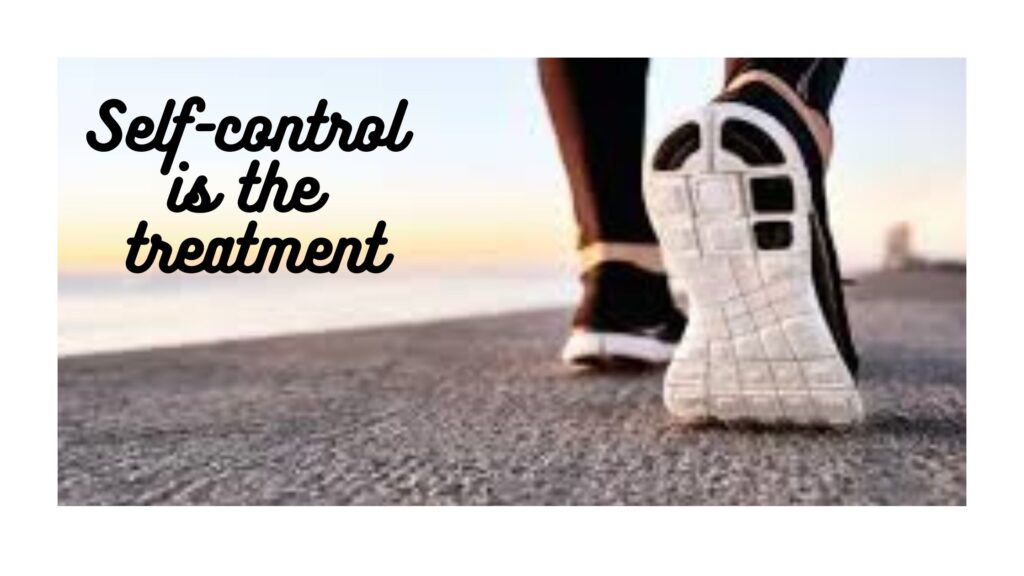Exercise feels good. When you exercise, your body releases endorphins, which are natural brain chemicals that trigger a positive feeling in the body, similar to morphine. Endorphins move with the receptors in your brain that reduce your perception of pain. It additionally triggers a positive feeling within the body, just like morphine.
Exercise is vital to good health. So please do it regularly. If you love working out and exercise is a regular part of your life, that’s great! Exercise may be a good way to remain healthy and fit. However, it’s important to be aware of the risks of exercise addiction. But there is such a thing as too much exercise.
People who feel pressure to remain in shape are in danger of developing exercise addiction. People who are obese or following an extreme weight loss plan can also be in danger of exercise addiction.
When exercise becomes an addiction?
Exercise addiction is a real problem that can impact your physical and mental health. Signs of exercise addiction include feeling withdrawal symptoms when you miss a workout, prioritizing exercise over other activities, and exercising to the point of injury. If you’re concerned that you might be addicted to exercise, talk to your doctor.
If you’re not sure whether you’re addicted to exercise or not, there are some things you can look for. Exercise addiction can be addressed and treated, so if you’re worried about it, don’t hesitate to seek help. Exercise addiction is a serious problem that can have a negative impact on your health and well-being.
Exercise addiction typically starts with a desire for good shape. An eating disorder like anorexia or bulimia, might result in unhealthy obsession with exercise. A body image disorder might also cause exercise addiction. In some cases, former drug addicts and alcohol abusers do exercise to fill the void left by past addictions. This kind of approach is like a smoker could become dependent on caffeine after quitting cigarettes.
Warning signs of exercise addiction

If you’re concerned that you might be addicted to exercise, there are a few warning signs to look out for.
First, exercise addiction can cause you to neglect other important aspects of your life. If you find that you’re skipping work, school, or family responsibilities in order to exercise, that’s a red flag.
Second, exercise addiction can lead to physical health problems such as injuries, exhaustion, and malnutrition. If you’re noticing any of these issues, it’s time to seek help.
Finally, exercise addiction can also cause emotional problems such as anxiety, depression, and irritability. If you’re starting to feel like exercise is taking over your life, it’s important to reach out for help.
- Exercising excessively and for long periods of time
- Focusing only on exercise and ignoring other areas of life
- Skipping social activities, work, or school in order to exercise
- Experiencing withdrawal symptoms once unable to exercise
- Exercising through injuries or illnesses.
- It can also be compulsive, when done to excess or done compulsively. This addiction is frequently linked to other psychological issues including obsessive-compulsive disorder, anxiety and depression.
- If you are sleeping too little because you are exercising for hours at a time, it could be a sign of an unhealthy relationship with exercise.
- Exercising instead of eating
- Feeling guilt when you don’t exercise.
- Over exercising despite injuries or illness
- Prioritize exercise over other activities.
- Always feeling rushed
- Obsessing over results
If you have any concerns that you may be developing an exercise addiction, it is important to speak with a mental health professional. They can help you assess your symptoms and develop a plan for addressing them.
Symptoms of exercise addiction
Common symptoms of exercise addiction include:
- feeling buzzed after exercising
- experiencing withdrawal symptoms
- experiencing uncontrollable desires to exercise
- reducing activities in alternative areas of life
- spending time preparing for exercise
- experiencing an inability to stick with a reduced exercise timelines
How can I prevent exercise addiction?

To prevent exercise addiction, avoid excessive trips to the gymnasium. Limit your physical activity time and the amount of daily exercise.
Take breaks from exercise throughout the week to let your body rest. If you find discover yourself so keen with exercising, consult your doctor about what you can do. Eat healthy and satisfactory food which you like. Do fun exercising activities or sport activities with your friends and family. Find some other alternate ways to cope up with your stress.
Mental and physical dedication will treat exercise addiction. Exercise addicts ought to avoid medicine, alcohol, caffeine, and different substances which will be addictive.
The amount of your time it takes for an individual to beat exercise addiction depends on the severity of the condition.
Treatment for exercise addiction

Self-control is important to treat exercise addiction. An addict acknowledges that they have a problem and takes steps to regulate exercise activity.
Exercise addicts typically switch to new varieties of exercise or moderate their current workouts. An exercise addict may need to stop exercising for a while to gain control of the desire.
Takeaway
Some people can become dependent on this “high” and continue exercising beyond what is necessary for health or fitness. This can lead to serious health problems as well as emotional distress over not being able to exercise.
To avoid exercise addiction, make sure you’re working out for the right reasons.
If you’re exercising because you love it, the activity shouldn’t be a chore — it should be something that makes you feel better and stronger. Exercise should make you feel energized, not drained.
Exercising often is a good thing, but too much exercise can cause health issues such as sleep deprivation or stress fractures. It’s important to stay active, but not so much that you hurt yourself. Always pay attention to these warning signs.
Answering these questions can help determine whether you have an unhealthy relationship with exercise or if your healthy relationship is just a sign of getting fit and healthy.

Pingback: Best ways to tighten saggy skin after weight loss naturally